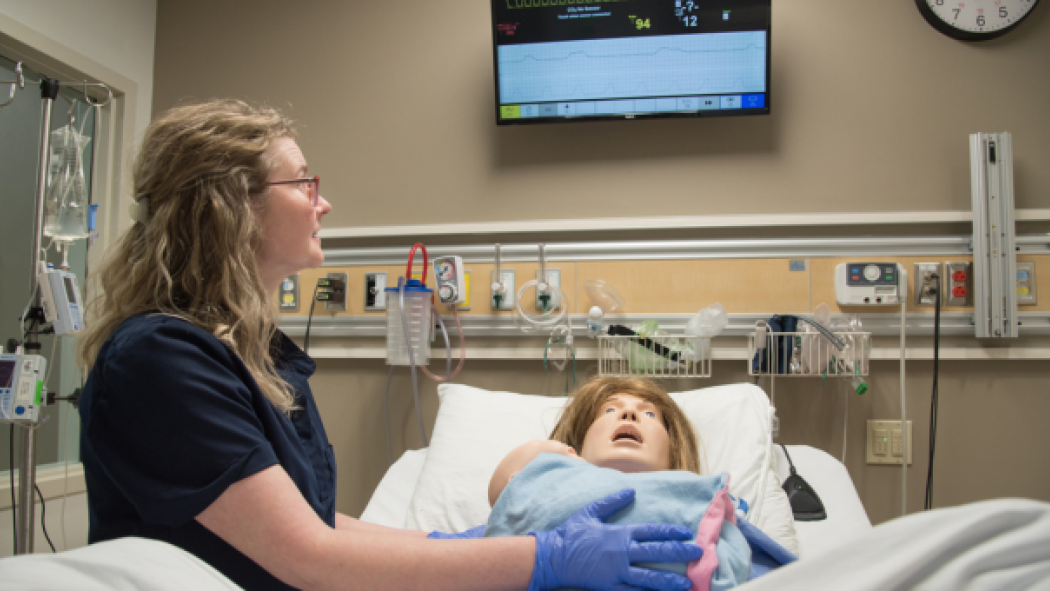
July 4, 2024
It can be hard to speak up when your team leader is doing something wrong or something you don’t understand. This is true in almost any job, but it can be particularly dangerous in health care – when speaking up could be crucial to patient care.
A research team led by Dr. Taryn Taylor, an obstetrician/gynaecologist at London Health Sciences Centre, is focused on using simulation to show team leaders how difficult it can be for team members to speak up in these situations.
Historically, attempts to solve the problem of silence within interprofessional teams have focused on teaching all team members to be brave and speak up using scripts and strategies intended to make it easier to have those difficult conversations. These interventions have largely failed to show an improvement in speaking up behaviours.
“What our research team has shown is that we need to start shifting our focus to the team leader and their role on the team in creating an environment in which speaking up is not an act of bravery, but a shared expectation of the team,” said Dr. Taylor, Assistant Professor in the Department of Obstetrics & Gynaecology.
With this goal in mind, the team brought together members of the obstetrical care unit for simulation scenarios in LHSC’s Michael Gunning Simulation Centre. The team participated in a realistic high-stakes scenario involving an obstetrical patient. Before the simulation, the obstetrician for each group was privately asked to make specific errors or oversights. The research team then focused on how the other team members navigated the scenario in which their team leader was faltering.
“The benefit of this simulation is that team leaders got to see how their team members responded when their leader is not at their best,” explained Taylor. “It was an eye-opening experience for many of the leaders who, prior to participating in the simulation, would have considered themselves really approachable people.”
The findings of the research were outlined in a paper titled “Maybe I’m not that approachable”: using simulation to elicit team leaders’ perceptions of their role in facilitating speaking up behaviors, which was published in Advances in Simulation. The paper has received international acclaim for its outstanding use of simulation in health-care research.
“What we learned is that approachability is about being physically present with your team,” said Dr. Taylor. “You’re not just showing up for the pages and acute events; you’re there for those in-between moments to build camaraderie with the team. Approachability is also about having moments of vulnerability as a leader, and this means sharing your thought process in the moment and making time to debrief after challenging situations.”
In an ideal world, all health-care workers would have the opportunity to participate in a similar simulation, but as a more immediate solution, the research team is working on making their findings available to all team leaders to help develop a culture of approachability. They are also in the process of replicating the initial study within other clinical contexts.
The research paper was authored by an interprofessional research team including Dr. Rachael Pack, Dr. Harrison Banner, Lauren Columbus, Trevor Hines Duncliffe, Dr. Natashia Seemann and Dr. Priyanka Singh, with Dr. Taylor as senior author and principal investigator. It received international acclaim for its novel approach, including recognition as one of the Society for Simulation in Healthcare Articles of Influence for 2022-23 and was awarded the Simulation Journal Club Award for Best Research in Medical Simulation at the 2023 International Association for Health Professions Education conference (AMEE).